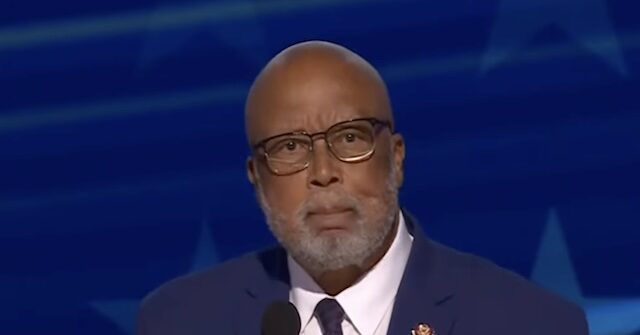On a recent episode of CNN’s “Newsroom,” Representative Bennie Thompson (D-MS), the former chair of the January 6 Committee, discussed the potential implications of former President Donald Trump’s threats towards committee members and the prospect of receiving a preemptive pardon from President Joe Biden. Host Jim Acosta raised concerns about Trump’s rhetoric, specifically mentioning Trump’s assertion that Thompson should face imprisonment. In response, Thompson emphasized the role of Congress in ensuring its members operate within the law and the protections afforded to them through specific legislation. He expressed confidence that he and his colleagues have not acted unlawfully, thus downplaying any apprehension of legal repercussions from Trump or the FBI.
Acosta pressed further, noting reports of the White House contemplating preemptive pardons for individuals who might be targeted by Trump upon his potential return to the presidency. Thompson acknowledged that if President Biden were to extend an offer of a pardon to him or other members of the January 6 Committee, he would indeed accept it. However, Thompson also clarified that the decision lies solely with the President. He highlighted the hard work of the committee’s staff and the cooperative testimonies from witnesses, many of whom were Republicans. He underscored the lack of any findings of wrongdoing during the committee’s extensive two-year review process, which was also overseen by Republican chairpersons, reinforcing the integrity of their investigations.
Further delving into the topic, Thompson expressed pride in the January 6 Committee’s work, stating that the findings of the committee are transparent and can be examined by the public through the comprehensive report they produced. He maintained that nothing in their report contradicted the testimonies given or the evidence collected. Thompson’s remarks reflect a broader narrative about accountability and truth in the political landscape following the events of January 6, emphasizing that the committee aimed to uphold democratic principles and conduct a thorough investigation free from partisan bias.
To Thompson, the matter of potential pardons for committee members also touches upon significant issues regarding the future of accountability for those involved in undermining democracy. Accepting a pardon could symbolize an acknowledgment of the political tensions surrounding the January 6 events and the motivations behind Trump’s actions. This situation brings into question the ethical implications of seeking a pardon, especially if it relates to actions taken while performing official duties as committee members working to uphold the rule of law.
Thompson’s sentiments reveal apprehension over the possibility of political retribution in a future Trump administration but stress that the committee’s mission was executed with integrity. He reiterated that he and the other members stand by their work and findings, asserting that they are ready to defend their actions and decisions. Their commitment to transparency and accountability serves as a critical stance against what they perceive as threats to democratic norms posed by Trump and his supporters.
In conclusion, the discussions surrounding preemptive pardons and the dynamics between elected officials and former administrations highlight a significant intersection of law, ethics, and the preservation of democratic institutions. Representative Thompson’s remarks encapsulate a commitment to principle amid the ongoing turbulence of U.S. politics, expressing confidence in the legitimacy of the January 6 Committee’s efforts while navigating the complex landscape shaped by Trump’s rhetoric and potential future actions. This ongoing dialogue serves as a reminder of the pressing need for safeguarding democracy and upholding accountability in governance.

